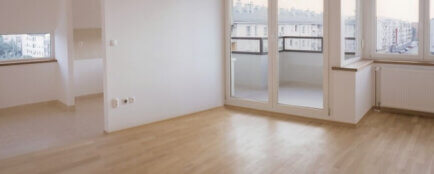How to deal with loud neighbours
Legend has it that Mikuláš Dačický of Heslov disturbed his neighbours in Kutná Hora in the 16th century with drinking and loud singing, even from the local cloakroom for noblemen. And he was suspected of murder. That is, until he was banned from visiting the prison after numerous complaints.
However, loud neighbours can spoil an otherwise pleasant home even in the 21st century. But sometimes they are unaware of the noise they are making, and a friendly chat is all that is needed. Most of the time, however, it is not that simple, and despite numerous warnings, troublesome neighbours still make noise. At this point, many people decide to resort to various methods such as switching off fuses, playing loud music or deciding that it is the best time to learn to play the violin. However, this is not a long-term solution. You might consider, for example, soundproofing your home to help reduce the noise level at least partially.
When you are in the right
The first, fairly straightforward situation is disturbing the night. Night-time is the time set aside for restful sleep and is from 10pm to 6am. During these hours, people must not make excessive noise and disturb others. The municipality may also regulate the night-time quiet hours, but only for exceptional cases.
Another situation may be frequent noise from neighbours during daytime hours. You are protected in this case too. There are so-called immission limits, which determine what level of noise from neighbours is still acceptable and what is not.
Are you solving a similar problem?
Loud neighbours?
Are you bothered by loud neighbours and the agreement doesn’t work? Send them a formal pre-action notice. Based on our internal statistics, we have verified that more than 70% of cases are then quickly met or at least partially met.
I want to send a pre-suit notice
- When you order, you know what you will get and how much it will cost.
- We handle everything online or in person at one of our 6 offices.
- We handle 8 out of 10 requests within 2 working days.
- We have specialists for every field of law.
How to defend yourself
If your neighbours are not keeping the peace at night, for example by listening to loud music, arguing or banging on doors, you can contact the police. Disturbing the night is an offence for which neighbours can be fined up to CZK 10 000 and up to CZK 15 000 if they repeatedly disturb the night.
In the case of immissions, i.e. if neighbours regularly make noise during the day, the best solution is to raise the problem at a meeting of the cooperative or HOA. It may well be that noisy neighbours do not only bother you, but also the other residents of the flats. Alternatively, you can contact the building manager, who should start addressing the situation. In addition, you can also contact the regional health station, which should theoretically measure the noise level in your home to see if it exceeds the immission limits. However, this does not work very well in practice.
Tip for article
Tip: To take your arguments to the next level, it is worthwhile to get legal representation at a meeting of the HOA or BD. Our attorneys can help you consult and prepare for the meeting, or they can attend the meeting directly to represent your interests and protect your rights.
If this doesn’t work, you have no choice but to send a pre-action notice and, as a last resort , take your neighbours to court. Get an experienced lawyer to help you do this. The burden of proof in this case will be on you, and the lawyer will be able to pick the right arguments, find the necessary evidence and apply the right laws. If you win the lawsuit, your neighbour must refrain from making noise. Otherwise, the court’s decision can be enforced through fines, which can amount up to CZK 100,000.
Tip for article
Tip: It’s a good idea to send a pre-suit notice before filing the lawsuit itself. This alone can be intimidating to your neighbor, and even more so if it is sent by an attorney.
If you don’t want to drag your neighbour to court or if you think the noise is not enough but still bothers you, there is another solution – soundproofing the apartment.
Where does the noise get into the apartment
Sound can enter your home through a number of different routes. One common route is airborne transmission, where open windows and doors allow sound waves to easily enter the living space. But often sound also travels easily through walls, as many flats have very thin and poorly insulated walls.
Sound also enters through the building structure itself. In this case, it is mainly impact sounds such as footsteps or the movement of furniture on the floor or walls. These create vibrations that are conducted through the structure of the building. In addition to footsteps, sounds can also be conducted by pipes and risers that run throughout the dwelling units.
The design of windows and doors also plays a crucial role. For example, old wooden windows with single pane glass are less effective at blocking sound compared to newer versions with double or triple pane glass. Doors made of poor quality and thin material or gaps around doors also present opportunities for sound penetration.
Ceilings and floors are another major contributor to sound transmission. Their insulation capacity depends on the materials they are made of. For example, parquet floors carry sound better than carpets.
How to soundproof an apartment on your own
If soundproofing was not incorporated into the walls, ceilings and floors during the construction of the apartment building, then it is difficult to add it retrospectively when you are figuring out how to soundproof the apartment. This is because it involves major interventions in the walls, floors and ceiling, which require various approvals from the housing association, the condominium association and the building authority. Fortunately, however, it is possible to soundproof an apartment even without the need for structural modifications, by yourself. Soundproofing an apartment can be done in several ways – from installing heavy curtains and acoustic panels to more complex solutions such as partitions or special acoustic panels. It is important to focus on the main sound transmitters:
Wall soundproofing
- Another layer: Line the walls with dense materials such as mass loaded vinyl (MLV) or acoustic panels. Install them on top of the existing walls, preferably still under a layer of plasterboard. To reduce vibration, use damping adhesive between layers.
- Curtains and drapes: Heavy, tightly woven curtains and drapes can also absorb sound and reduce sound transmission.
- Furniture against the walls: Placing shelves, cabinets or other furniture against the walls will help break up sound waves and reduce their transmission.
- Electrical outlets and switches: Sound can also travel through small gaps around electrical outlets and switches. Use foam gaskets to seal these gaps.
Soundproofing floors and ceilings
- Carpet: Lay thick carpets or special noise-absorbing carpets on the floor. On the other hand, avoid materials that carry sound, such as floating floors, parquet or tiles.
- Install a pad: Place a special soundproofing pad under the floor to further soundproof your space.
- Acoustic panels: Install acoustic panels on the ceiling to absorb sound waves.
Soundproof windows and doors of the apartment
- Caulking: If your windows don’t seal as they should, install caulking around them. Not only will this prevent sound from penetrating, but it will also help maintain temperature and prevent drafts.
- Moldings: install door moldings on the bottom of the exterior door. These are flexible strips that create a barrier between the door and the floor and prevent sound from penetrating through gaps.
Soundproofing of pipes and treads
- Insulation: install insulation around pipes. Foam pipe insulation is readily available and can absorb and dampen sound vibrations.
- Acoustical Sealant: Apply acoustical sealant around gaps or openings where pipes pass through walls or floors.
- Pipe Wrapping: Wrap pipes with a dense, sound-absorbing material. Specific pipe wraps, often made of rubber or other sound-absorbing materials, are designed for this purpose.
Permission to soundproof the apartment
If you are only making the above modifications, you will not need a building permit as you are not interfering with the structure of the building. If you have a freehold flat, you do not need the approval of the unit owners’ association. On the other hand, if you have a condominium, you may well need the condominium’s permission. In this case, however, it depends on the particular co-op and what is stated in the bylaws.
In any case, it is a courtesy to inform your neighbours that you are going to renovate. Notify them, for example, by posting a note on the notice board with the expected duration of the work.
Summary
Problems with noisy neighbours can significantly affect the quality of living, whether it is loud music, arguments or banging. It is advisable to try a friendly discussion at first, but if this does not work, you can defend yourself in an official way – call the police if there is a disturbance during the night, contact the HOA, the building manager or the sanitary station if there is noise during the day. Another option is to take legal action, such as sending a pre-action notice or filing a lawsuit. Alternatively, the apartment can be soundproofed with self-help or building modifications, whereby sound travels through walls, ceilings, floors and pipes. Soundproofing can include good quality windows, carpets, door seals or special insulation materials.
Tip for article
Tip: Are you constantly dealing with problems with your neighbours? Are you bothered by the noise or smell coming from their property? It may be immission, which in many cases is illegal. Find out how to defend yourself in our next article – How to deal with problem neighbours.




